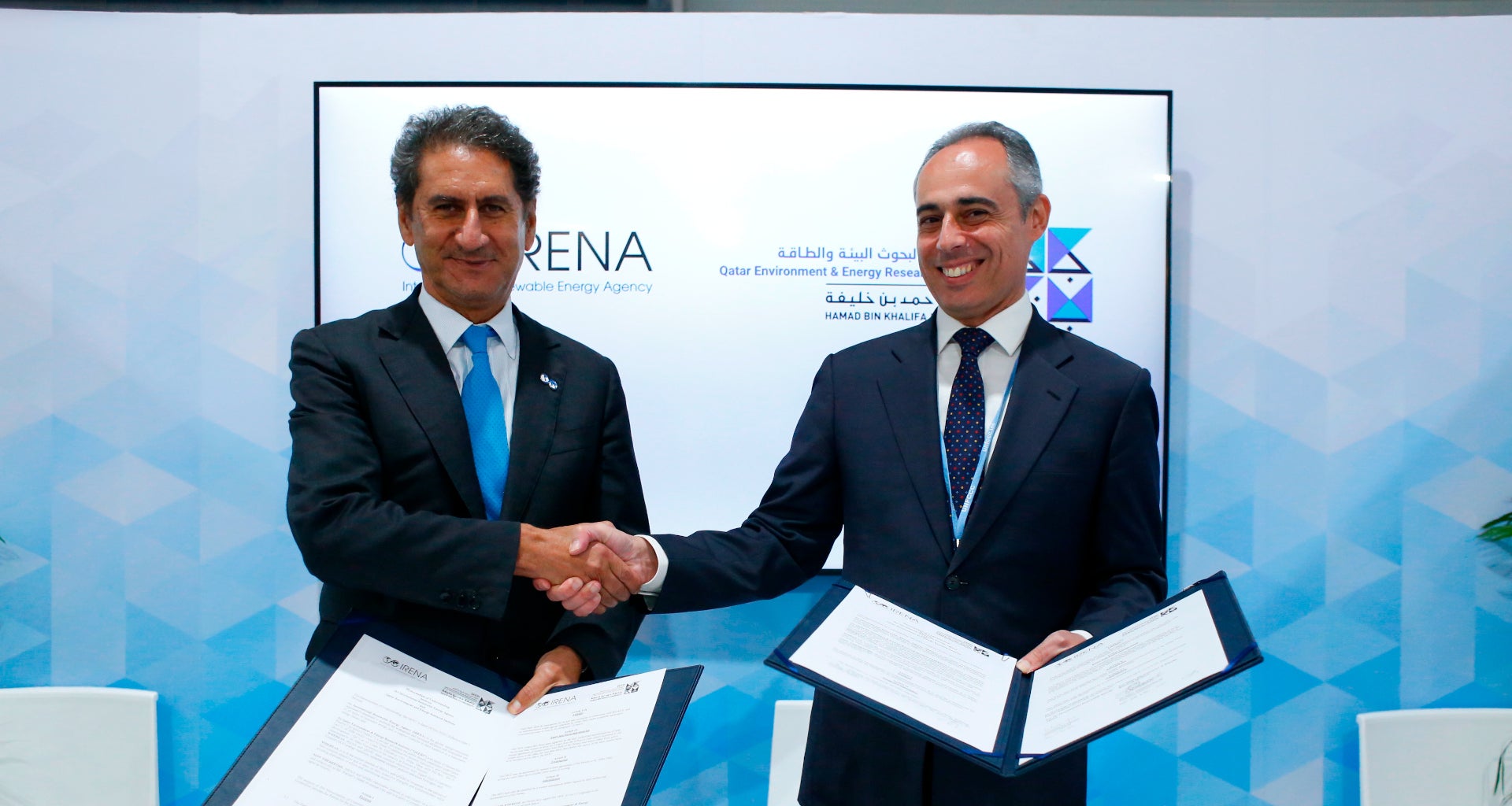HBKU faculty and scientists demonstrate efforts to tackle region-specific climate change challenges.

Hamad Bin Khalifa University (HBKU) scientists and faculty made notable contributions as part of the Qatar Foundation (QF) delegation attending the 27th Conference of the Parties to the United Nations Framework Convention on Climate Change (COP27) in Egypt. HBKU had a presence in the Qatar Pavilion, hosted by the Ministry of Environment and Climate Change (MoECC) in the Blue Zone.
Qatar Environment and Energy Research Institute (QEERI) and the College of Public Policy (CPP) both demonstrated their active engagement in the critical debates at the heart of global efforts on combating climate change. Through presentations and talks, faculty and scientists showcased their distinctive research and academic expertise on environmental sustainability and governance in the region.
For QEERI, COP27 is an opportunity to demonstrate how it is deploying knowledge, research, and innovative technologies to accelerate Qatar’s climate change adaptation and mitigation strategies. Dr. Marcello Contestabile, QEERI Chief Economist, highlighted critical contributions supporting Qatar commitments under the Paris Agreement, focusing on the institute’s work to develop cost-effective pathways for deep decarbonization in Qatar. Also in focus at a session with Dr. Khaled Mahmoud, QEERI Research Director, was the institute’s cutting-edge scientific and technological solutions to sustainably manage climate change impacts on Qatar’s groundwater quality.
QEERI strengthened collaboration with regional and global actors on climate change action during the event. That included signing a Memorandum of Understanding (MoU) with the International Renewable Energy Agency (IRENA). The MoU formalized joint efforts to exchange knowledge, research, and technologies that advance renewable energy and carbon neutrality.
Dr. Marc Vermeersch, Executive Director at QEERI, explained: “QEERI’s research and innovation excellence, including our world-class technological solutions, have a pivotal role in Qatar’s climate-resilient, sustainable future. As a national institute, we are mandated to assist Qatar in overcoming its grand challenges in relation to water and energy security, harnessing sustainable energy resources, and diversifying its energy mix. Our participation at COP27 was therefore a continuation of QEERI’s efforts at the national level, but also crucial for identifying new research partners, to strengthen international cooperation and knowledge-sharing for global impact.”
For its part, CPP demonstrated academic expertise at the science-policy interface. A forthcoming book, Sustainable Qatar: Social, Political and Environmental Perspectives, was the focus of a session with Dr. Logan Cochrane, Associate Professor and Associate Dean for Academic Affairs at CPP, and the book’s co-editor, who was joined by Dr. Contestabile, Dr. Dhabia Al-Mohannadi (Texas A&M at Qatar), and Orjan Lundberg (Supreme Committee). The speakers provided insights into the book’s chapters, which constitute a landmark collection on environmental policy in the Gulf, and beyond.





